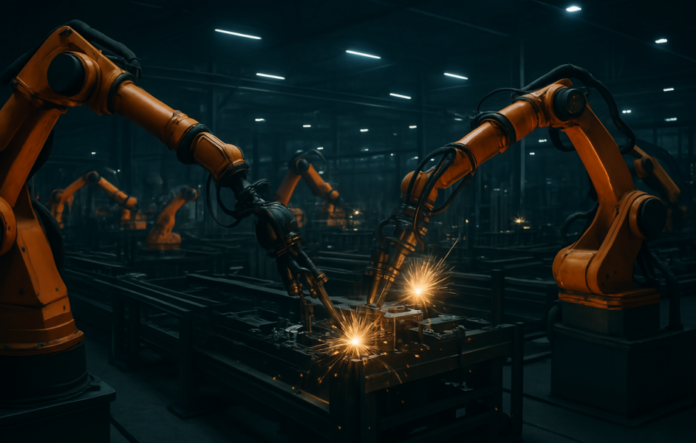What Are Dark Factories?
A dark factory is a fully automated production facility without human workers. The term dark factory originates from the fact that these facilities do not require traditional lighting since no humans are on the factory floor. Instead, advanced machines, AI systems, and robotics manage every aspect of production, including assembly, inspection, and logistics. This setup eliminates human error, reduces labor costs, and allows continuous operation without breaks or fatigue.
The Rise of AI-Driven Automation in China
China has become a global leader in industrial automation, driven by its efforts to adopt advanced technologies like AI, robotics, and smart manufacturing. The government invests heavily in these areas to boost the country’s manufacturing power and stay competitive in a fast-changing global market.
Adapting to the Future of Work: The Impact of AI-Driven Automation on Jobs
Dark factories are quickly becoming one of the most noticeable signs of AI-driven automation, where human workers are replaced entirely by machines and AI systems. These fully automated factories operate 24/7 without lighting or human intervention and are transforming industries globally. Companies like Xiaomi and Foxconn use AI and robotics to improve efficiency, reduce labor costs, and run operations continuously without human workers.
Job Displacement and the Skills Gap
One of the most significant consequences of this automation is job displacement. Many manufacturing, logistics, and customer service workers are at risk of losing their jobs as machines take over tasks once done by humans. The World Economic Forum predicts that by 2027, up to 83 million jobs could be lost to automation, particularly in assembly lines and warehouses.
Conclusion
AI-driven automation is transforming the manufacturing industry, especially in China’s dark factories. While these advancements offer significant gains in efficiency and cost reduction, they raise important concerns about job displacement, skills gaps, and social inequality. As automation continues to grow, it will be essential for businesses, governments, and workers to work together to find solutions that ensure the benefits are shared fairly. By focusing on reskilling workers, promoting AI ethics, and encouraging collaboration between humans and machines, we can ensure that automation enhances human labor rather than replaces it.

